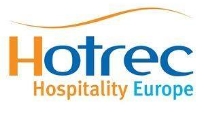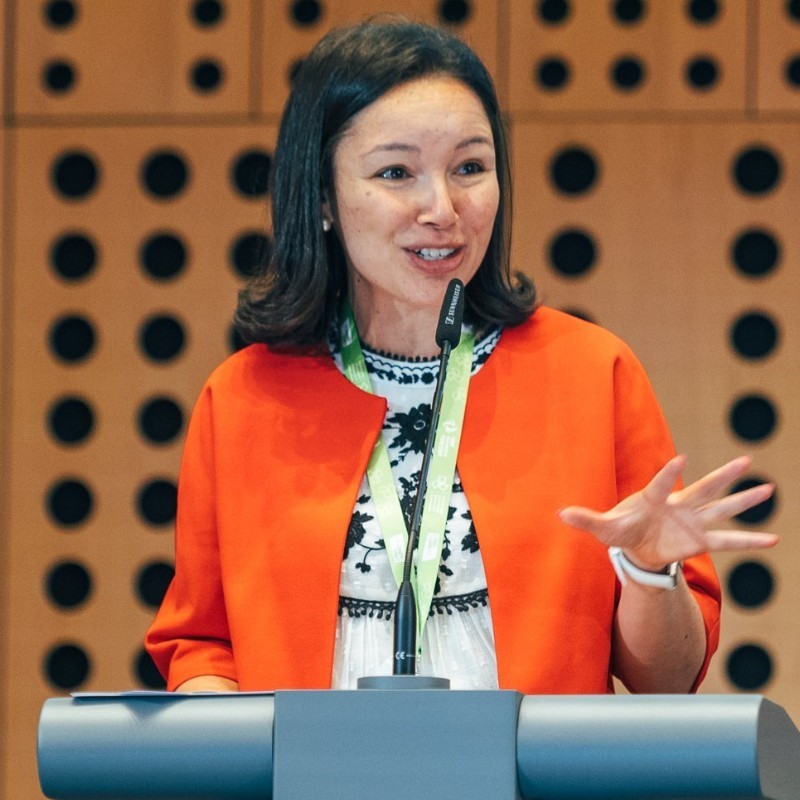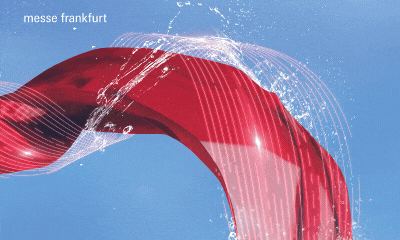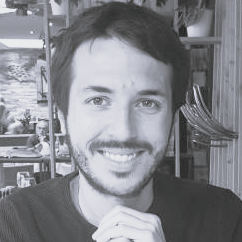 |
INTERVIEW - MARTA MACHADO, DEPUTY DIRECTOR GENERAL, HOTREC: "SUSTAINABILITY MUST BE APPROACHED HOLISTICALLY"
The Hotrec association has published a study to help the hotel industry move towards energy transition, with a target of carbon neutrality by 2050. |
Catégorie : Europe - Économie du secteur
- Interviews et portraits
- Chiffres et études - Développement durable - Interviews
Interview de Christopher Buet le mardi 23 janvier 2024
 Marta Machado, Deputy Director General, HOTREC
Crédit photo © HOTREC
It's a multi-faceted approach, covering the fight against food and cosmetics waste, the use of single-use plastics, water consumption management, or collaboration with local producers and craftsmen. Not forgetting the direct or indirect preservation of biodiversity, employee training and the production of green energy such as solar power. The solutions are innumerable, and it's easy to get bogged down without knowing where to start.
Given the disparities in knowledge and awareness, the European association HOTREC has decided to act as an ally for hoteliers, helping them to begin, continue or even deepen their energy transition. To this end, it has published a report aimed at professionals, outlining best practices and the right tools to influence their impact and move towards carbon neutrality in hotel operations by 2050. This is in line with the objectives set by the United Nations and the European Union. HOTREC's Deputy Director General, Marta Machado, spoke to Le Journal des Palaces about this important report and the association's role among hotels in Europe.
Journal des Palaces: You have just published a study in which you set out a trajectory for hotels to achieve carbon neutrality by 2050. Why is it critical for HOTREC to set out these guidelines, and why is it essential for the future of the hotel industry?
Marta Machado: HOTREC recognises the urgency of addressing climate change and supports the United Nations' goal for carbon neutrality by 2050. While the industry faces challenges in achieving this target, there is currently no common methodology to measure the environmental footprint, hindering comparisons. HOTREC, in collaboration with TOPOSOPHY, has commissioned a report to identify tools and methodologies to help companies – including SMEs – to become greener.
At the same time, HOTREC is part of an EU-funded project working on a Product Environmental Footprint for the Accommodation sector. This common methodology will only be ready within three years' time. In the meanwhile, HOTREC recommends all companies to use the tools and methodologies proposed in the study: A Roadmap to Net Zero for European Hospitality.
In your introduction, you recall a conclusion made in 2021 to the effect that the right time to achieve “Net Zero” was 20 years ago. How do you explain this delay, and what are the consequences?
Climate change has only recently gained global attention, leading to the implementation of EU legislation like the Green Deal. However, the hotel sector needs time to adapt to infrastructural changes, especially after being severely impacted by the COVID-19 crisis. Overcoming obstacles requires support at both the EU and national level, considering challenges such as loan repayment, energy and food prices, inflation, geopolitical conflicts, and climate change effects. The sector seeks assistance to navigate these challenges and fulfil the Green Deal objectives.
Where would you advise a hotel to start to reduce its impact and embark on a virtuous path?
We strongly advocate adopting a methodical, step-by-step approach outlined in our comprehensive study titled “A Roadmap to Net Zero for European Hospitality.” Sustainability should be approached holistically, incorporating economic, environmental, and social considerations. Begin by measuring and actively reducing energy and water consumption, waste generation, and carbon emissions.
It is crucial to also prioritise initiatives such as minimising the use of single-use plastics, contributing to community well-being, addressing inequalities, and promoting gender balance within your operations. Embracing these measures, even in small increments, can yield a substantial positive impact on your environmental and social footprint.
For example, how can the complexity of the tourism ecosystem be resolved, and how can the various players involved be brought into line with each other?
Addressing the intricacies of the tourism ecosystem calls for the establishment of a robust network that seamlessly connects EU and national associations, companies, Tourism National Boards, governments, and stakeholders. To achieve this multifaceted goal, it is essential to facilitate the sharing of practical knowledge and best practices at both national and EU levels.
Creating platforms for collaboration by organising conferences and webinars that offer networking opportunities for hospitality businesses will also play an important role. Finally, we will need to encourage the exchange of insights on training opportunities among stakeholders, and diligently monitor networking initiatives to ensure a cohesive and aligned approach among the diverse players in the industry.
What initiatives do you see as promising?
Our study highlights promising initiatives, such as hotels adopting sustainable practices like energy and water savings, environmental management, and communication with guests. Examples include using local timber, heat pumps, energy-conscious lighting, and recycled plastic furniture. In restaurants, plant-based dishes sourced from organic farming are other examples of how to become greener.
Additionally, there's an innovative example of a club harnessing gig-goers' body heat to minimize its carbon footprint. HOTREC's role is to gather and share such good practices, fostering learning and collaboration among its members and companies.
|
|







